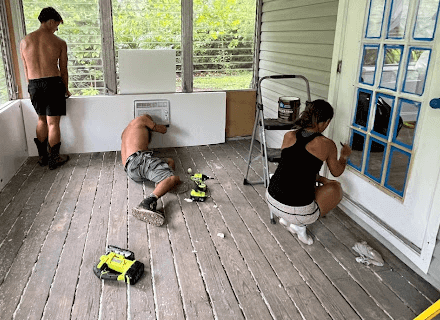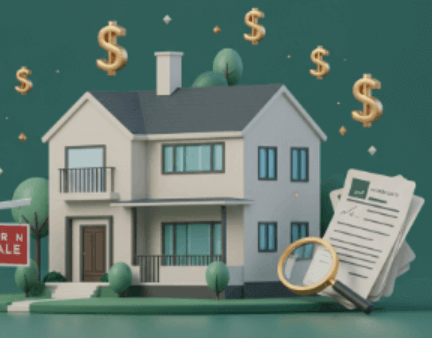When deciding to sell your property in the Sunshine State, understanding the hidden costs of selling your home goes beyond just listing and real estate agent fees. Our latest blog dives deep into “Revealing the Hidden Costs of Selling Your Home in Florida,” aiming to shed light on those often-overlooked expenses that can impact your bottom line. From unexpected repairs to closing costs, we uncover everything you need to know to confidently navigate the hidden costs of selling your home in Florida. Get the insights you need for a smoother, more predictable home-selling experience.
Steve Daria and Joleigh, renowned real estate investors and house buyers for cash, have illuminated the often-overlooked expenses in selling homes in Florida. They emphasize the significance of being aware of closing costs, necessary repairs, and potential real estate commission fees, which can all be subtracted from the final sale price. Homeowners can bypass many hidden costs by selling directly to investors like them, simplifying the selling process.
Preparing Your Home for the Market
Before we delve into the hidden costs of selling your home, your property might need pre-market TLC. It’s about setting the stage for a lucrative sale, and this curtain-raiser bears a significant price tag.
Home Renovations and Repairs
The initial cost of readying your home for the market is typically spent on necessary repairs and minor renovations.
Leak patches, fresh coats of paint, and often under-looked landscaping expenses add up quickly.
Florida’s humid climate, for instance, may lead to mold remediation, a cost that can surprise first-time sellers.
Factoring in these expenditures as you prepare your property’s debut isn’t just financially sound; it’s a vital step in preserving your home’s value.

Professional Staging and Photography
First impressions matter, and the competition can be fierce when selling a home in Florida.
Engaging a professional to stage your home can set you back significantly, but staged homes often fetch higher offers and sell faster.
The same applies to investing in high-quality photography or virtual tours—these visual assets might swing an undecided buyer your way, making them investments worth budgeting.
The Realtor Realm
Navigating the realtor landscape can sometimes feel like a mystery concerning cost. We unveil the complexities and break down the fees that ensure your home gets the attention it deserves.
Realtor Commission
Most sellers in Florida opt for a real estate agent to oversee their home sale.
The typical commission rate hovers around 6%, customarily shared between the seller’s and buyer’s agents.
However, this isn’t set in stone, and negotiating the commission is always an option, especially in a bustling market like Florida, where real estate fees are relatively high.
Multiple Listing Service (MLS) Listing
A fee is usually due for your property to feature among the coveted MLS listings.
This cost opens the doors to countless potential buyers searching online, where most home buyer journeys begin.
However, some brokerage firms might include this fee in their service packages, so exploring your options with different agents can yield savings.
Marketing Your Home
A costly part of a realtor’s service is the marketing budget. Buyer incentives, open houses, and print advertising are just several expenses incurred to showcase a home effectively.
The Sunshine State’s diverse market means that targeted marketing is often non-negotiable, adjusting the profitability calculus of your sale.
Get An Offer Today, Sell In A Matter Of Days…
Administrative Financialities
Selling your home in Florida involves many administrative duties that can’t be overlooked. These hidden costs of selling your home could catch you off guard, but not if you’ve got this guide.
Title and Escrow Costs
Ensuring the smooth transfer of your property to the new owner involves title searches, insurance, and the materialization of escrow services.
While the buyer typically manages title and escrow fees, sellers must remain vigilant as these costs can sometimes creep into negotiations.
Recordation and Transfer of Taxes
These state-mandated taxes must be settled just as the ink on the sale contract dries. The amount varies with the home’s selling price, but it’s a seller’s responsibility in Florida to ensure they’re paid upon transfer.
Professional Legal Assistance
Securing a real estate attorney for the transaction may seem like an additional—and sizable—cost, but their peace of mind is invaluable.
From drafting legal documents to ensuring that the sale adheres to state laws, professional legal advice can prevent financial mishaps in the future.

The Home Stretch
As home sellers approach the final stages of a sale, it’s crucial to understand what are closing costs and how they can impact the transaction.
Closing costs are the fees needed to complete a real estate deal. They may include attorney fees, title insurance, and other administrative charges.
These costs are vital for sellers to consider because they can significantly affect the net proceeds from the sale.
If sellers aren’t prepared for closing costs, they may face unexpected financial shortfalls, which could jeopardize the deal.
Properly managing these expenses is essential to ensure the sale closes smoothly and doesn’t fall through at the last minute.
By being informed about what are closing costs, sellers can better plan their financial strategy and avoid surprises, making the final stretch of selling a home much more manageable.
Home Inspection and Warranty
Offering a home warranty and promptly addressing any concerns uncovered by a home inspection can inspire confidence in potential buyers.
These provisions can comfortably set your home apart in a demanding marketplace but require some financial outlay nonetheless.
Final Utility Bills and Moving Costs
The actual move-out costs after the sale should be part of your pre-sale calculations. Sellers are responsible for ensuring that all utilities are in working order during the closing period and might even need to cover the costs of a few additional months, depending on the buyer’s moving schedule.
Capital Gains Tax
For many Floridians, capital gains tax will not apply if the home has been their primary residence for at least two of the past five years.
However, real estate investors selling second homes or rental properties should factor in these taxes, which can be significant.
Seeking advice from a tax professional is the most prudent step in understanding your tax liabilities.
Selling Your Home in Florida, Strategically
Whether considering the market’s seasonality or timing open houses to perfection, strategic selling in Florida can optimize your sale price and streamline the costs.
Seasonal Considerations
The allure of Florida’s winters attracts a flux of potential home buyers, which could favor higher offers during these peak seasons.
However, increased competition during this time might mean you must be more vigilant with the costs we’ve covered. Spring and early summer can be a sweet spot, offering a balance between demand and timing.
Selling to Real Estate Investors
Bypassing traditional real estate channels and selling to investors might reduce some of your cost burdens.
While the sale price may not reach the same heights as in a retail transaction, the swift sale and avoidance of various traditional costs may lead to a more satisfying bottom line. Be discerning, though, as predatory investors looking to exploit a seller’s urgency exist.
DIY Sales
Selling your home yourself without a realtor could reduce hefty commission fees. However, undertaking the marketing, paperwork, and legal aspects alone can be laborious and potentially risky.
If this route piques your interest, brush up on real estate laws, ensure you maintain fair market prices, and consider hiring a real estate attorney for the complex bits.
Financial Serenity Through Preparation
One common thread that binds the various hidden costs of selling your home in Florida is the simple act of preparation.
By researching, understanding, and proactively accounting for these expenses, sellers gain a financial serenity that transcends the frenetic rhythm of real estate transactions.
Establishing a Budget
Begin by crafting a comprehensive budget that includes every foreseeable cost, such as the home inspection, realtor fees, and moving expenses.
Beyond the predictable costs, padding your budget with a 10-15% buffer is a well-advised safety net for unexpected expenditures.
Regular Market Analysis
Remaining acutely aware of your local market trends and conditions is akin to holding a mirror against the sun’s rays; it reflects the reality of your home is worth and what it can fetch.
Engage with realtors, scour listings, and track recent sales to understand the financial landscape you’re about to traverse.
The Closing Statement Scrutiny
The final closing statement is the ledger of your selling experience, documenting every fee and payment.
Scrutinizing this document for any discrepancies or surprise charges is your last line of defense before the seal of your sale is set.
Takeaways
- Unexpected Repair and Maintenance Costs: One of the first hidden costs of selling your home in Florida is the potential for unexpected repairs. Sellers may find themselves needing to fix issues like roofing or plumbing, which, if not addressed, could decrease the home’s appeal and overall selling price.
- Significant Closing Costs: The hidden costs of selling your home often include closing costs, which encompass fees like title insurance, attorney fees, and taxes. These expenses can be surprisingly high, reducing the net amount sellers receive from their home sale if they are not prepared.
- Realtor Commissions: A frequently overlooked hidden cost of selling your home is the realtor commission. In Florida, sellers typically pay a percentage of the sale price to both the listing and buyer’s agents, which can significantly impact the final profit from the sale.
- Staging and Marketing Expenses: Investing in staging and marketing can be another hidden cost of selling your home. While these efforts can make a property more attractive to buyers, they also add to the overall costs, potentially affecting the seller’s bottom line.
- Pre-sale Inspection Discoveries: Pre-sale inspections might unveil additional hidden costs of selling a home. These inspections can reveal necessary repairs or improvements that need attention before listing the property, requiring further investment to meet buyers’ expectations and secure a successful sale.
**NOTICE: Please note that the content presented in this post is intended solely for informational and educational purposes. It should not be construed as legal or financial advice or relied upon as a replacement for consultation with a qualified attorney or CPA. For specific guidance on legal or financial matters, readers are encouraged to seek professional assistance from an attorney, CPA, or other appropriate professional regarding the subject matter.

